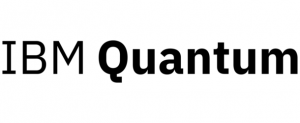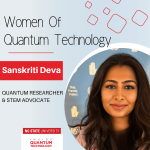Quantum News Briefs August 30: IBM Quantum makes major leap in quantum computing error-detection; Alice & Bob unveils new consulting unit focused on high-value applications of quantum computing;

Quantum News Briefs August 30:
IBM Quantum makes major leap in quantum computing error-detection
 Researchers at IBM Quantum say they have developed a system that dramatically improves error-detection in quantum computing. Quantum News Briefs summarizes the announcement as reported by Peter Grad in Phys.org.
Researchers at IBM Quantum say they have developed a system that dramatically improves error-detection in quantum computing. Quantum News Briefs summarizes the announcement as reported by Peter Grad in Phys.org.
In an online post August 28, IBM explained the challenge: “Standard classical error-correction only needs to correct bit flip errors,” said IBM researcher Sergey Bravyi.”Quantum computers must correct more kinds of errors, like phase errors which can corrupt the extra quantum information that qubits carry … Techniques must [also] correct errors without the ability to copy unknown quantum states, and without destroying the underlying quantum state.”
In their research paper, IBM researchers described a process they say greatly trims the required arsenal currently used in quantum computing to catch errors.
Bravyi says many experts estimate fault-tolerant quantum computing would require millions of qubits, “a number we believe is too large to be practical at this stage of development.”
IBM’s solution, improved code and a redesign of qubit placement, achieves results requiring one-tenth the number of physical qubits currently used in error-correction.
“Practical error correction is far from a solved problem,” the researchers acknowledged in a paper titled “High-threshold and low-overhead fault-tolerant quantum memory” published Aug. 15 in the preprint server arXiv.
“However, these new codes and other advances across the field are increasing our confidence that fault tolerant quantum computing isn’t just possible, but is possible without having to build an unreasonably large quantum computer.” Their approach currently only works on quantum memory and not computational power.
“These techniques are a stepping stone towards a world of fault-tolerant computing,” Bravyi says. . . “It’s a promising result pointing us where we should look next for even better error correcting codes.” Click here to read the article in-entirety.
Alice & Bob unveils new consulting unit focused on high-value applications of quantum computing
 Alice & Bob, a leading hardware developer in the race to fault-tolerant quantum computing, announced on August 20 the launch of a consulting unit called The Box. Quantum News Briefs summarizes.
Alice & Bob, a leading hardware developer in the race to fault-tolerant quantum computing, announced on August 20 the launch of a consulting unit called The Box. Quantum News Briefs summarizes.
“The Box was created to address a specific need in the ecosystem for expert advice drawing from deep technical experience and business acumen,” said Théau Peronnin, CEO and co-founder of Alice & Bob. Alice & Bob’s consulting team is dedicated to offering valuable insights into the status and potential of quantum computing, helping clients devise effective quantum strategies that focus on high-value applications, irrespective of platform.
The Box has begun working with major consulting firms and industry players to construct comprehensive roadmaps for integrating quantum computing into their workflows. Current clients include:
- A multinational automobile company exploring the use of quantum molecular simulation to find sustainable alternatives for scarce metals used in batteries for electric vehicles and fuel cells for hydrogen cars.
- A global energy company focusing on quantum catalyst optimization to significantly reduce the production costs of future renewable fuels.
“The team assesses, identifies and prioritizes scalable use cases for each client to develop strong business strategies based on the market and technological potential,” Peronnin said. “They will enable organizations to extract the maximum business value from the technology as it develops over time.”
The consulting unit is built upon a wealth of academic and strategic experience, with a team of quantum physicists and strategists led by Dr. Linde Hansen, who earned a Ph.D. in quantum computing from the University of Oxford and previously led McKinsey’s knowledge and business development around quantum technologies.
Alice & Bob’s hardware development is focused on ‘cat qubits’ – superconducting quantum bits with built-in error correction that reduce the hardware requirements for effective quantum computing.“Our roadmap focuses on a new, faster path to fault tolerance, that skips any intermediate steps of error-prone quantum prototypes,” said Peronnin. “Since we don’t currently offer hardware for commercial use in the NISQ era, the Box team can be truly hardware agnostic regarding the advantages and risks of the full range of quantum hardware and software solutions for organizations, laying the groundwork for future fault-tolerant quantum applications.” Click here to read the announcement in-entirety.
Infleqtion names former Army Applications Lab executive Brance Hudzietz Director of Partnerships

Infleqtion announced the appointment of Brance Hudzietz to Director of Partnerships on August 29. Quantum News Briefs summarizes the news announcement.
Hudzietz maintains a robust network of government, academic, technology, and capital partners across the country who are key to, and share a common vision of, a world radically evolved through quantum sensors, information and computing. As Director of Partnerships, Hudzietz will serve as the liaison between Infleqtion and current and prospective partners, strengthening collaboration, building strategic alliances, and driving business growth.
Prior to joining Infleqtion, Hudzietz worked as an Entrepreneur in Residence for the Army Applications Lab, the leading innovation organization of the U.S. Army, where he built relationships between non-traditional government innovators to support the Army’s modernization priorities. Prior, Hudzietz served as Ambassador of Emerging Technologies for Capital Factory, Texas’ premier early-stage technology accelerator and venture fund. There, he spent eight years advising large organizations on how to best leverage early-stage technologies for institutional innovation.
“Brance’s experience will accelerate our ability to scale manufacturing and deploy quantum technologies from the lab to the field,” said Scott Faris, CEO of Infleqtion. “He is positioned as a driving force behind Infleqtion’s Texas expansion endeavors. He will concentrate on bolstering the company’s strategic partnerships in the region, strategically identifying key prospects for both growth and collaborative ventures.” Click here to read complete announcement.
US Navy working to harness benefits of quantum computing at warfare centers specializing in R&D
 Quantum computing has the potential to exponentially improve the way the U.S. Navy operates. according to a recent article by the public affairs office of the Naval Undersea Warfare Center Division . Quantum News Briefs summarizes.
Quantum computing has the potential to exponentially improve the way the U.S. Navy operates. according to a recent article by the public affairs office of the Naval Undersea Warfare Center Division . Quantum News Briefs summarizes.
Possibilities include improved processing time that would quickly advance machine learning and autonomy efforts, the removal of noise clutter would optimize sensing, and encryption methods would become virtually impenetrable.
This field has been active for more than 50 years, but much of quantum computing’s benefits remain in the theoretical stage. The Navy’s efforts to harness the benefits of quantum computing are ongoing at warfare centers specializing in research and development.
Small teams at the Naval Information Warfare Center Pacific (NIWCPAC) and the Naval Surface Warfare Center (NSWC) Dahlgren have been researching quantum computing and developing algorithms while at the Naval Undersea Warfare Center (NUWC) Division Newport, physicist Mike Warnock serves as the quantum research point person.
Quantum computing work performed in the Navy is sparse, although there are research efforts at the Naval Research Laboratory and funding sources such as the Office of Naval Research. The Navy, as a whole, has recently begun investing more in quantum computing, Warnock said.
“There are some quantum computing efforts at NSWC Dahlgren and NIWCPAC that have been going on for years, but the majority of other warfare centers — including NUWC Division Newport — haven’t had any quantum computing programs that are as mature as either of those two,” Warnock said.
However, because of the efforts of Warnock and his colleagues, Division Newport has started to be considered a more mature program in terms of knowledge of the field in comparison to other warfare centers. NSWC Carderock and the Applied Research Laboratory at Pennsylvania State University (ARL-PSU) are looking to Warnock’s expertise for some collaborative efforts.
Navy researchers have access to IBM’s 54-qubit quantum computer. In December 2022, NRL and all 14 warfare centers signed a memorandum of understanding with the Air Force Research Laboratory’s (AFRL) Information Directorate “to establish a conduit for exchange of technical expertise and the exploration of co-projects with a focus on creating useful quantum computing capabilities for the Department of Defense.”
The agreement gives Navy scientists and engineers access to IBM’s advanced quantum computing systems, through the AFRL’s hub in the IBM Quantum Network, providing the ability to explore Navy-relevant problem sets focused on operations research, quantum machine learning, quantum simulation, classical simulation and crypto-analysis. Researchers need only pay for the waiver in order to get access to IBM’s machine. Click here to read the article in-entirety.
Sandra K. Helsel, Ph.D. has been researching and reporting on frontier technologies since 1990. She has her Ph.D. from the University of Arizona.



















